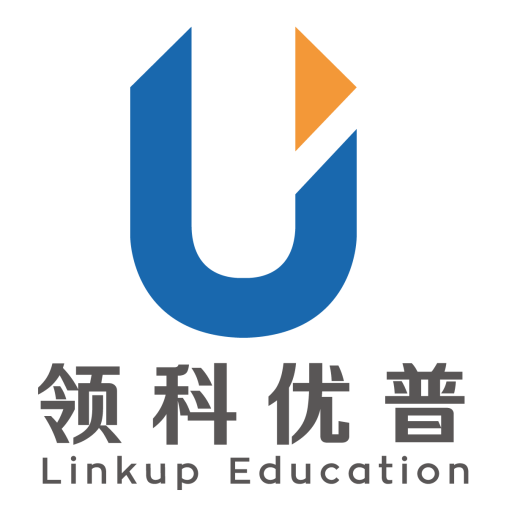This precept is about deleting private knowledge when you don’t want it anymore. Basically, you shouldn’t retailer personal data which is not of use for the purpose it was meant. This principle is very similar to the information minimisation principle, and many organisations consider deleting old information as part of information minimisation. Implementing a process for destroying information in a safe means might help you make sure that the information now not wanted is really removed and not nonetheless stored on a tool or in the cloud, the place it might be a possible security risk.
- It just isn’t straightforward to embed a knowledge ethics framework, tradition, and gear kit into a corporation.
- They present the authorized guidelines needed to make sure information is dealt with responsibly.
- Conceptually, it could seem like these topics — data and ethics — occupy two completely different worlds.
- It’s all about ensuring we use information responsibly in several areas like business, government, healthcare, and colleges.
- Stakeholders can be anybody from individuals whose knowledge is getting used to prospects, workers, authorities regulators, and people from the neighborhood.
Using information to make selections can change industries for the higher, but it also brings up moral worries about how fair and responsible these selections are. This is very true when algorithms make choices that have an effect on people’s lives, like in hiring or the legal system. These rights ensure that people have control over their personal lives and don’t face unnecessary intrusion.
Assess Threat Impact
Fewer companies have systematically thought-about and started to handle the ethical aspects of information administration, which might have broad ramifications and responsibilities. If algorithms are trained with biased data units or information units are breached, offered without consent, or otherwise mishandled, for example, corporations can incur important reputational and financial costs. Board members could even be held personally liable.3Leah Rizkallah, “Potential board legal responsibility for cybersecurity failures underneath Caremark regulation,” CPO Magazine, February 22, 2022. By doing so, you can defend your prospects’ security and save your organization from authorized issues. While the GDPR emphasizes the importance of implementing technical and organizational measures to guard personal data, it doesn’t prescribe particular encryption or anonymization strategies.

If one thing goes wrong, corresponding to a knowledge breach or an AI system making a discriminatory determination, businesses should take accountability and rectify the issue. When information is used to drive decisions – be it in healthcare, finance, or legislation enforcement – moral considerations make positive https://www.globalcloudteam.com/ that the algorithms and fashions don’t perpetuate discrimination or bias. To understand why knowledge ethics is essential, we have to reflect on the important function information performs in today’s society. It can form behaviors, influence decisions, and even outline the course of our lives.
Advocating For Ethical Knowledge Practices And Policies:
In today’s digital landscape, where information serves because the lifeblood of innovation and progress, the ethical implications of its use have come underneath intense scrutiny. As expertise continues to evolve at a speedy pace, so too does the need for clear rules and pointers to control its ethical use. Another ethical responsibility that comes with dealing with knowledge is making certain information subjects’ privateness. Even if a buyer provides your organization consent to collect, retailer, and analyze their personally identifiable info (PII), that doesn’t mean they need it publicly available.
Data ethics are ethical rules governing the accountable assortment, use, and dissemination of information to make sure fairness, transparency, and respect for particular person privateness rights. By teaming up with businesses, governments, colleges, and group groups, we are ready to sort out the powerful moral points that come with using data. In the realm of knowledge analytics and machine studying, moral considerations are paramount. As organizations use lots of information to study and determine things, it’s super necessary to verify they do it ethically. This means excited about not just the nice things knowledge can do, but in addition how it’s collected, looked at, and used. Not following these rules can lead to critical penalties, like huge fines or legal trouble.

They believe companies have an ethical duty (as properly as legal obligations) to guard customers’ information, defend in opposition to breaches, and ensure that personal knowledge are not compromised. We began to explore these questions by speaking with a couple of dozen international business leaders and information ethics experts. Through these conversations, we realized about some frequent knowledge administration traps that leaders and organizations can fall into, regardless of their greatest intentions. The field of knowledge ethics explores these questions and offers five guiding rules for business professionals who handle information. By adhering to these rules, organizations can build trust with their stakeholders, protect individual rights, and contribute to a more responsible and ethical knowledge ecosystem. Data ethics is top of the home at HSBC with board consideration and the development of seven sensible and relevant, useful and reusable principles and pointers which are shared with data administration practitioners.
Incessantly Asked Questions In Regards To The Gdpr
As we’ve famous, compliance teams and legal counsel shouldn’t be the one folks serious about a company’s knowledge ethics, however they do have an necessary position to play in making certain that knowledge ethics applications succeed. Legal specialists are greatest positioned to advise on how your company ought to apply current and emerging regulations. But groups may want to bring in outdoors consultants to navigate notably difficult ethical challenges. For example, a big tech firm introduced in an educational professional on AI ethics to assist it work out how to navigate gray areas, such because the environmental impact of sure sorts of knowledge use. Developing a data ethics framework is a crucial step in ensuring that an organization is handling data in an ethical and accountable manner. However, it’s equally important to observe and evaluate the effectiveness of the framework over time.

When moral decision-making is a precedence, it helps construct a tradition the place doing what’s right is inspired and appreciated. These tips can come from business teams, professional organizations, or ethics teams within the organization itself. They provide the authorized rules needed to verify data is handled responsibly.
Balancing Individual Privateness With Knowledge Utility:
Amid the rise of information regulation, such as the General Data Protection Regulation (GDPR) in Europe, most organizations are aware of the growing significance of knowledge ethics. In a world where customers are more and more attuned to information safety and privateness, the finest way that organizations implement information ethics can build (or erode) client belief and become a supply of competitive advantage. However, many organizations have yet to totally implement data ethics into their working model and organizational tradition. In this publish, we talk about greatest practices that can assist organizations translate information ethics from theory to motion. Regardless of which a half of the group the leaders target first, they should identify KPIs that can be used to watch and measure its efficiency in realizing their information ethics goals. To ensure that the ethical use of information turns into a half of everyone’s every day work, the management group also
Even when intentions are good, the end result of data analysis may cause inadvertent hurt to people or teams of people. This is called a disparate impact, which is printed within the Civil Rights Act as illegal. For professionals who regularly handle and analyze delicate knowledge, errors can nonetheless be made. A dataset is de-identified when all pieces of PII are eliminated, leaving solely anonymous information. This enables analysts to search out relationships between variables of curiosity with out attaching specific data points to particular person identities. Withholding or lying about your company’s strategies or intentions is deception and each unlawful and unfair to your knowledge subjects.
As the name suggests, this precept pertains to taking responsibility for your data processing. It means that you, as the info controller and/or processor, must be accountable for the proper processing of personal information and compliance with the principles of the GDPR. Integrity is about making Data Ethics sure that non-public information is correct and cannot be manipulated by others (i.e., you need to opt to protect your systems against hackers). Confidentiality is about making sure that only the individuals who should have entry to the personal knowledge are processing it.
By being open about how algorithms work, using instruments to search out bias, and ensuring the information is diverse, organizations can make algorithms which are fairer and extra unbiased. A big problem in information ethics is dealing with biases and unfairness in knowledge algorithms. These biases can come from completely different locations, like old knowledge being uneven or mistakes in how the algorithms are made. By making sure everyone understands ethics and makes good decisions, organizations can deal with these tricky situations actually and hold their promise to be open and accountable. This means talking with everyone concerned, pondering carefully concerning the risks, and contemplating what would possibly happen in the occasion that they choose completely different options.
This incident highlighted the rising importance of contemplating ethical concerns alongside innovation in such ventures. IBM’s commitment to AI ethics is seen in their principles of transparency and explainability in AI, which states that AI methods must be clear, and the decision-making means of AI should be explainable. At Collibra, our company values speak to the sort of group we wish to be. Two of our values — ‘Our work matters’ and ‘Open, direct, and kind’ — have direct relevance for a way we make decisions about information. As technology evolves quickly, new and emerging technologies bring about unique moral challenges. From biometrics and facial recognition to blockchain and autonomous methods, these applied sciences raise necessary questions on privateness, consent, autonomy, and their impact on society.
should do what they say they’ll do—or risk dropping the belief of consumers and other key stakeholders. As one senior government pointed out, maintaining religion with stakeholders may mean turning down certain contracts if they contradict the organization’s acknowledged knowledge values and commitments. In this text, we discover these traps and recommend some potential ways to keep away from them, such as adopting new standards for information management, rethinking governance fashions, and collaborating throughout disciplines and organizations. This record of potential challenges and cures just isn’t exhaustive; our analysis base was relatively small, and leaders may face many different obstacles, beyond our discussion right here, to the ethical use of data. But what’s clear from our analysis is that information ethics needs both more and sustained consideration from all members of the C-suite, including the CEO. The 5Cs of data ethics are a framework that helps guide ethical concerns and decision-making when it comes to handling and using data.
By making data security a precedence, organizations can earn belief from the folks they work with and show they take privateness seriously. This means issues like encoding sensitive information, establishing controls to limit who can access it, and coaching staff on how to maintain information protected. This means getting permission when needed, like when accumulating sensitive info, and keeping data secure from unauthorized entry.
